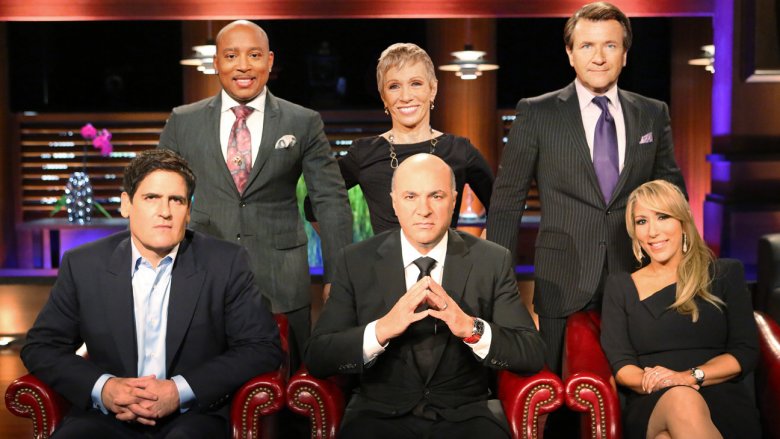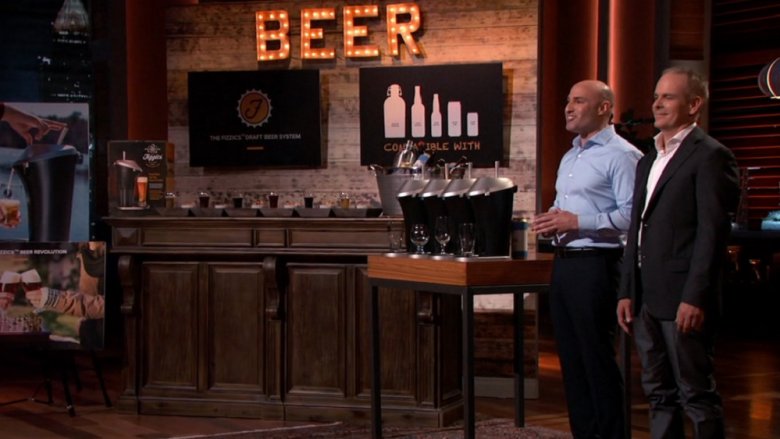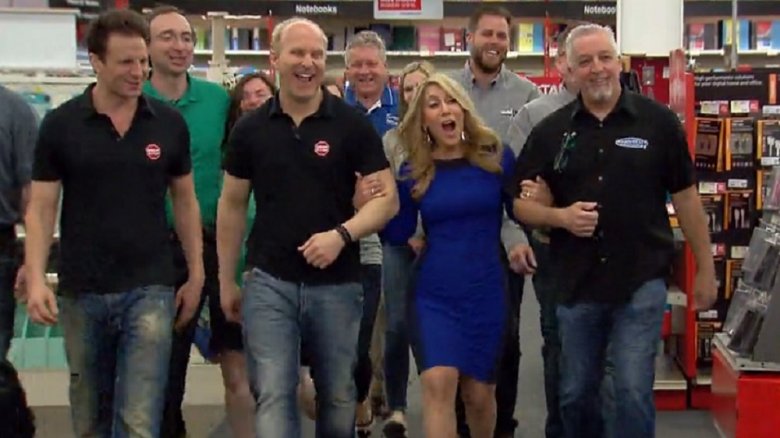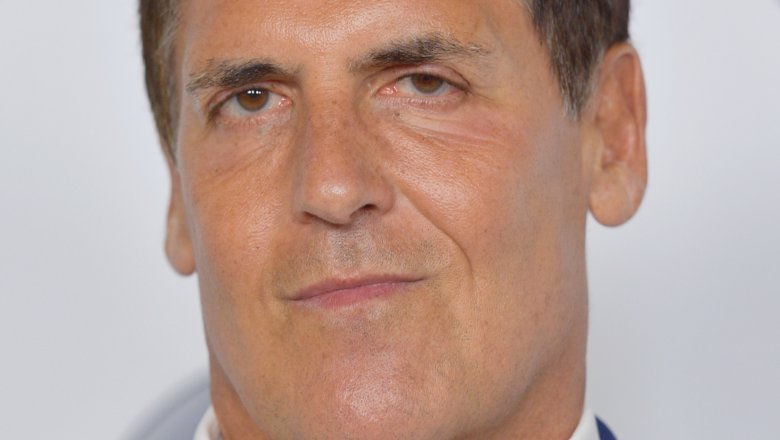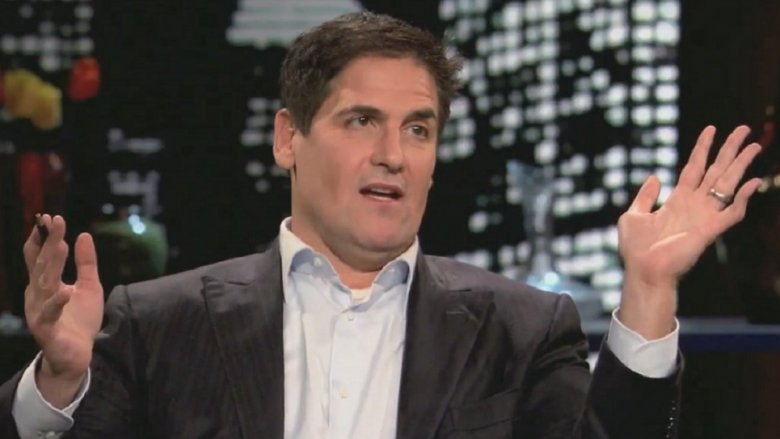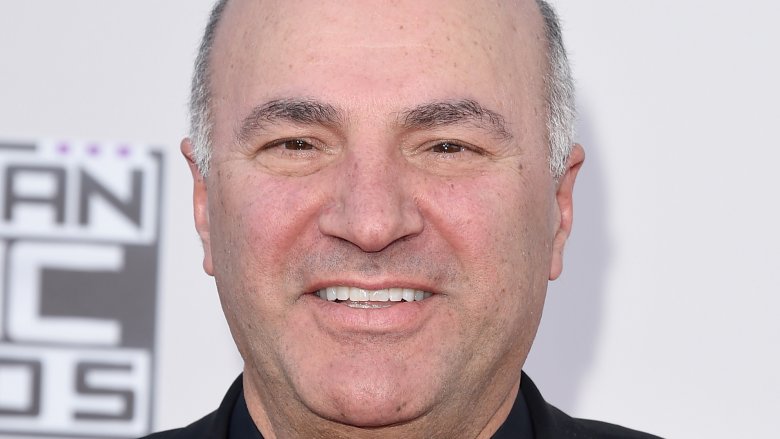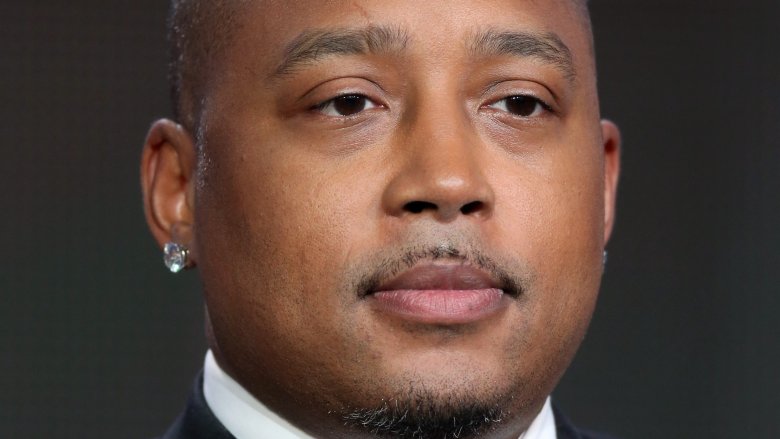Things You May Not Know About Shark Tank
In early 2017, the reality series Shark Tank—in which entrepreneurs pitch their companies to investor "sharks" in hopes of securing a partnership with one or more of them—celebrated a jaw-dropping milestone. With 2017 marking its eighth season, the sharks have offered $100 million in investments, helping to create more than 10,000 jobs. It's a remarkable testament to the power of a show that won over audiences with its unique brand of high-stakes drama—and made unlikely celebrities out of its cast, particularly tough-talking sports impresario Mark Cuban.
Let's take a closer look at some of the lesser-known details of Shark Tank, a rare reality series that has been an undisputed force for good, helping change the lives of hundreds of business owners, their employees, and their communities.
International versions
Successful reality shows tend to spin off foreign imitators, but in this case, Shark Tank actually is the imitator. Its format most closely follows the Canadian version of a show called Dragon's Den, which originated in the U.K. (keeping up?), but the original iteration was actually the Japanese series Money Tigers, which ran from 2001 to 2004. It contained most of the elements fans of the series are familiar with, only with what could kindly be called less robust production values and lower-stakes deals.
But the format proved popular enough to spawn imitators, and Dragon's Den and Shark Tank are hardly alone. There's a Polish version also called Dragon's Den, a Spanish version entitled Your Chance, Ukraine has Business Sharks, Finland has The Lion's Den, and the Czech Republic has an oddly spooky version called Den D.
There's even BizTank, an Orthodox Jewish version of the concept, which is shot specifically to be shown to investors with an eye toward one day perhaps growing it into a web series. Canada's version of Dragon's Den is the second longest running spinoff behind the UK version, with 12 seasons as of 2017. "Mr. Wonderful" Kevin O'Leary pulled double duty on both Shark Tank and Canada's Dragon's Den for a few years until leaving Dragon's Den after the eighth season ended in 2014. Fellow shark Robert Herjavec was a Dragon for six seasons.
Pitches happen differently than on TV
If standing up and pitching your small business in front of a bunch of rich, seasoned investors looks intimidating on TV, it's even more nerve-wracking in real life. While it stands to reason that pitches would be edited in order to fit as many as possible into the show's running time, the extent to which pitches are chopped up for television is truly surprising. A typical pitch lasts about an hour, the length of an entire episode, which is cut down to the ten minutes or so that the audience sees. But even an hour under the hot lights and withering stares of the sharks may not be the most stressful part of the experience.
Perhaps that's the very beginning of the pitch, when entrepreneurs are made to stand facing the sharks in complete silence for a full 30 seconds. Of course, this is so the camera crew can capture reaction shots and so forth, but it must feel like nothing less than an inquisition about to take place. Or perhaps you'll be one of the contestants unlucky enough to catch the sharks on a bad day.
Shooting takes place in marathon three-day stretches, and when you see an episode where the sharks are all irritated and fighting with each other, it was almost certainly shot on day three—and anyone with a less-than-stellar pitch is probably going to have a bad time.
It's good publicity even if you don't get a deal
Of course, even a spectacular pitch doesn't necessarily mean you've got a deal in the bag. O'Leary is fond of pointing out that the sharks are very smart investors. They need to be convinced not only of a company or product's potential in the marketplace, but that the people in front of them are the right ones to fulfill that potential. Then again, not even the sharks are always right—many companies that walked away without a deal still benefited enough from their appearance on the show to get to the next level on their own.
For example, seafood purveyor Chef Big Shake had their sales shoot up from $30,000 annually to over $1 million after their appearance (Mark Cuban has said that he regrets not making an offer), and Echo Valley Meats—a farm product delivery service—had their sales go from $1 million to a projected ten times that.
The effect can be so pronounced that some have been suspected of securing their Shark Tank appearances purely for the exposure, with no intention of accepting a deal. Among those is Garrett Gee, the creator of mobile app Scan, who Daymond John accused of being (in Shark Tank parlance) a "gold digger," seeking only exposure. Gee denied this, but he later told Business Insider that it was indeed his appearance on the show that caught the attention of Snapchat, to whom he later sold his app for $54 million.
Post-pitching psychotherapy
No matter the outcome, going on Shark Tank is a stressful experience. It's safe to say that few contestants have ever been in such a high-pressure situation before, and many view their appearance as the turning point of their professional lives, whether a deal is secured or not. It stands to reason that producers would take pains to ensure that there are no on-set meltdowns, but they go even further than you might expect.
After each pitch, entrepreneurs must meet with an on-staff psychiatrist, whether the pitch was successful or not. Drew Mitchell of Rent Like a Champion, who secured a great $200,000 deal with Cuban, explained to Business Insider, "The conversation is pretty casual, and she asks you to be reflective on the experience, but I think what's going on is they're trying to assess that you don't have any post-Tank trauma." Of course, some inevitably will. During shooting for the seventh season, an unnamed entrepreneur fainted during the pitch, needing to be revived (the segment never aired).
The sharks are very involved with their investments
Frequent viewers have likely noticed that most sharks demand (and usually receive) far more equity than contestants were originally willing to offer. As many entrepreneurs note, the benefits of having a shark as a business partner go far beyond the strictly financial. Sharks require a lot of equity because they know their investments are going to be taking up a great deal of their time, as they're all very hands-on.
Cuban in particular is heavy on resources, and as a matter of course will often have his companies take over the entire back end for his Shark Tank investments, including "their accounting, website, packaging design, and more." Daymond John has a different approach, saying to Business Insider, "I generally like a deal where we can become partners and I can help with all the licensing and branding. And then I can also tap into my network of social influencers and celebrities to get them to sell more." O'Leary promises his entrepreneurs "the support of [his] entire team," with "the same goal as the entrepreneur: Bring in cash flow. I'll do anything to make sure that happens."
They all claim massive success with their Shark Tank portfolios; Cuban said at a Wall Street Journal conference (via Business Insider) that out of 71 companies he's invested in through the show, "two have gone out of business, three are so stupid they don't know they're out of business, and then probably 50, give or take, are in growth."
Mark Cuban is the richest of them all
It may not be immediately obvious from his rather casual demeanor and style of dress, but Cuban is actually insanely rich. In a room full of extremely wealthy people, he's not only the wealthiest, he's richer than all of the other sharks combined by a whopping margin.
Cuban sold his first consulting service to CompuServe in 1990, and one of the first audio streaming networks to Yahoo! in 1999. This sale netted him enough cash—$5.6 billion—to acquire the NBA's Dallas Mavericks in 2000, and under his leadership the long-struggling team finally grew into a successful franchise, winning a world championship in 2011. His Shark Tank investments have exploded his portfolio, and his current net worth is a staggering $3.3 billion.
To put that in perspective, the next richest shark—O'Leary—is worth about $300 million as of 2016, less than a tenth of Cuban's wealth. Since we know you're curious, the rest of the primary cast's estimated net worth breaks down like this: Daymond John – $250 million; Robert Herjavec – $100 million; Barbara Corcoran – $80 million; and Lori Greiner – $50 million.
Cuban went to bat for all contestants
Net worth aside, Cuban often comes off as one of the most fair-minded of all the sharks, and a brief and little-publicized battle between him and the show's producers suggest that this is exactly the case. During the show's early run, entrepreneurs had to agree as part of a standard contract to give up either 2 percent of their profits or 5 percent equity in their company to the production company—whether they got a deal or not. This infamous "equity clause" would probably still be in place, had Cuban not threatened to leave the show over it.
Cuban announced the repeal of the clause in a 2013 Facebook conversation with some former contestants, explaining that if it were allowed to stay in place, the quality of the contestants was sure to decline, as no savvy businessperson wants to give away something for potentially nothing. He also asserted that the clause had been removed retroactively, meaning that not only would future contestants not be subjected to it, but previous seasons' contestants no longer would either.
Casting calls are open to the general public
Potential contestants are obviously pre-screened, but it's not quite as tough to get a shot at appearing on the show as you'd think. In fact, ABC holds open casting calls around the country every season, to which just about anyone can show up. All hopefuls need to do is download and fill out an online application, then come to the venue on the prescribed date ready to pitch.
Of course, you won't be in front of Mr. Wonderful, but a team of casting directors. The good news: you'll get the opportunity to put your full showmanship on display and blow the casting team's doors off with a vibrant description of your must-have product. The bad news: you'll have to do that really, really quickly. Open casting call hopefuls are only given one scant minute to make their pitch and try to secure their slot on the show.
What you see isn't always what you get
Deals made on the show are not binding, and they can and do fall through for various reasons. Sharks will always pull out of a deal if an entrepreneur's numbers or information doesn't check out, and contestants who do secure deals sometimes change their minds as well—for example, one struggling company that agreed to sell 100 percent of their business to Cuban for $200,000 got cold feet after the episode was shot.
According to Daymond John, about 80 percent of the deals made in season seven actually closed. This is up from about 60-70 percent in previous seasons, which can be chalked up to producers getting better at spotting the aforementioned "gold diggers" who only want to appear for the sake of publicity. But also, not all companies who walk away without a deal stay without one.
For example, Surprise Ride, the company behind an e-commerce site for children, failed to land a deal on the show after making their pitch in season five (they turned down a deal from Robert Herjavec). O'Leary apparently decided to keep an eye on them, and when they managed to not only hit but double the growth they had projected during their pitch, he shocked the owners by dropping in to their offices to make them an offer. He bought a 2.5 percent stake in the company for $50,000 and the services of his marketing team—the first time ever that a failed pitch resulted in a belated deal.
The show's success has mirrored that of its businesses
The no-nonsense John can seem rather curt and intimidating, but he has an unbelievable nose for business and was once a struggling entrepreneur himself. In a thoughtful post on his blog, he sees the ascent of Shark Tank as a mirror image of the path to success followed by its small businesses, saying, "Shark Tank was far from an overnight success. Like any entrepreneur, it had its share of hurdles and unexpected challenges. Just like a start-up, the show had to pivot. It had to make small, gradual changes ... It took five years of hard, steady work to grow the show into something that people wanted to stay home on Friday nights to watch."
It's the same inspiring message that John hopes that the show imparts to all of its viewers, contestants, and anybody who is struggling to succeed—that struggle is part of success and true prosperity never comes without hardship. His post concludes, "So, aspiring entrepreneur, don't give up! Even a product already proven in three huge international markets, helmed by five seasoned entrepreneurs and top-line producers...and partnered with huge companies like Sony and ABC, still faced daunting challenges and struggled to find success."
